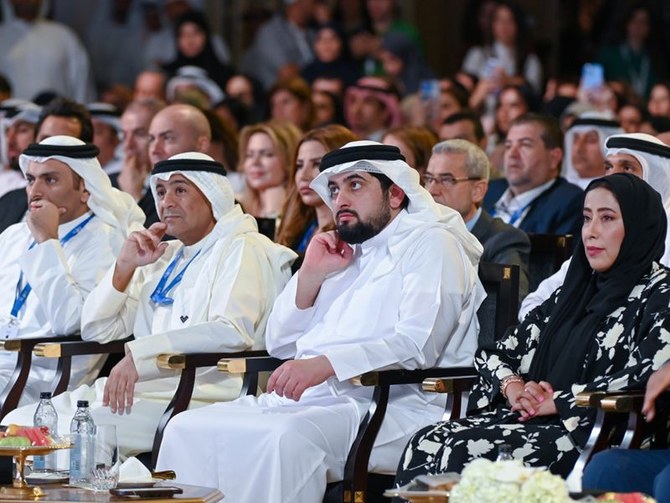DUBAI: The Gulf Cooperation Council is on the right path towards positive political and economic progress and cooperation, Jassim Muhammad Al-Budaiwi, the secretary-general of the GCC, said on Tuesday.
Speaking at the annual Arab Media Forum held in Dubai, Al-Budaiwi touched on points of progress and the challenges that member countries face.
He said the presence of Saudi Arabia at BRICS and the UAE at the G20 Summit proved how “vital and important their participation is not only economically but in terms of coexistence, humanitarian aid and trade.”
Al-Budaiwi also touched on the subject of Iran and its relationship with the member countries, reiterating the main agenda is to get Iran to stop meddling in the region and to respect international laws.
“Re-opening ties with Iran or attempting to is not necessarily new, there have been multiple attempts throughout the years; the late Saudi King Abdullah even tried,” he said.
“We are asking for a ‘normal’ relationship, after all, we are neighbors on the western frontiers,” he added.
While Iran has some good relations with certain member countries, such as Kuwait and Oman, “the proof is in the pudding,” Al-Budaiwi noted. “The bigger and most important point is: do not meddle.”
Ties were seeing progress until the recent Houthi-backed drone attack which claimed the lives of two Bahraini soldiers by the Saudi-Yemeni border on Tuesday morning.
In terms of economical cooperation and numbers, the GCC’s budget amounts to $2.4 trillion, with $170 billion allocated for trade with each other.
“These are not small numbers nor are they easy to achieve. But our cooperation with each other and the steps we are taking in transparency help,” Al-Budaiwi said.
He added that the GCC members have outstanding cooperation between each other in terms of political and security issues, but that economic plans require more effort and sacrifices and there is where the main challenge is.
“You can’t win them all, you can’t lose them all” he noted during the session.
The GCC is undergoing modernization of laws and regulations which is cementing its place in the global stage.
On media and journalism, the GCC handles topics rather than dictation, preferring to discuss how to better promote their plans, like backing Saudi Arabia’s bid to hold Expo 2030 and the UAE hosting COP28, as well as how to tackle sensitive topics like the burning of the Qur’an in Europe.
GCC member countries include: Saudi Arabia, The UAE, Bahrain, Qatar, Kuwait, and Oman.

























